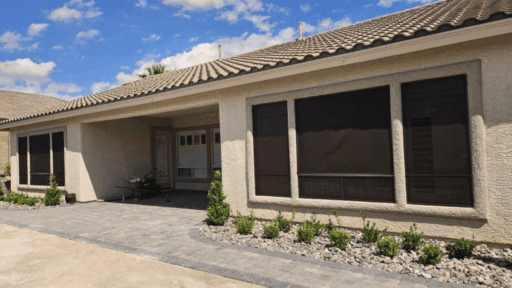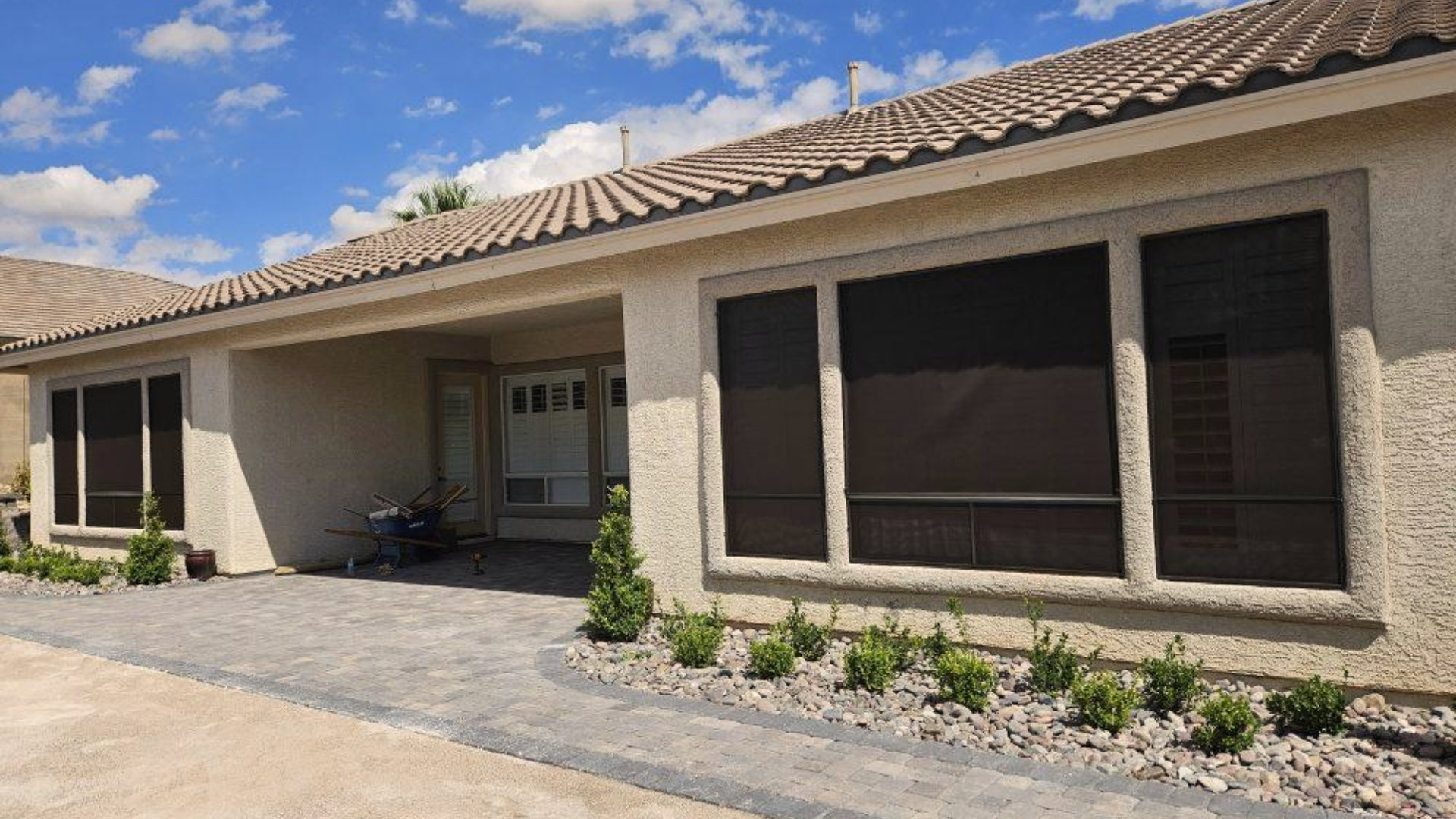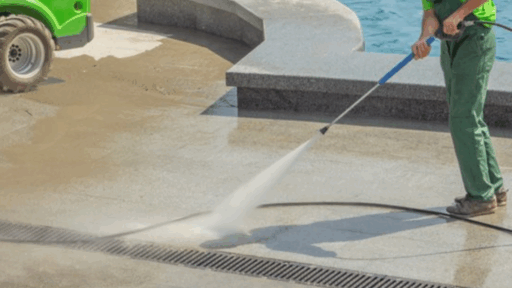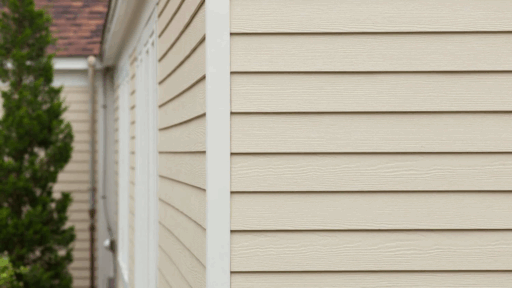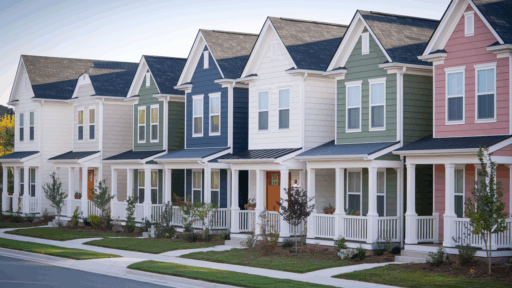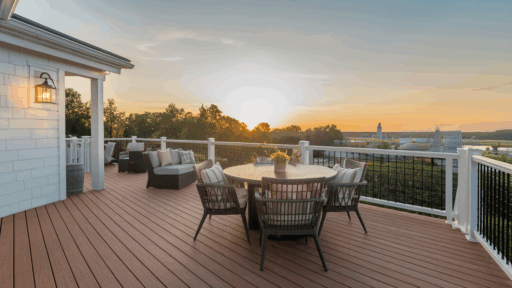Ever sat in your living room, squinting against harsh sunlight that turns your space into a blazing greenhouse?
Most homeowners are familiar with the struggle of battling summer heat and high energy bills.
What if there were a simple, smart solution? Enter solar screens, the unsung heroes of home comfort.
My guide will walk you through everything you need to know about solar screens, including:
- How they work
- Key benefits
- Installation tips
- Cost considerations
I’ve researched and tested solar screens extensively to help you make the best choice for your home.
Ready to change your home’s comfort and efficiency? Let’s start.
What Exactly Are Solar Screens?
Solar screens are like sunglasses for your home. Imagine a mesh-like cover that stops sunlight before it crashes through your windows.
These clever window protectors are typically made from durable materials like polyester or fiberglass, designed to hang outside your window frame.
Unlike traditional blinds that sit inside your home, solar screens create a protective shield before sunlight even touches your glass.
Think of them as a first line of defense against heat and glare. They’re different from window films because they actually block the sun’s rays before they enter your living space.
However, they’re especially powerful on south and west-facing windows that receive the most direct sunlight.
They come in various colors and densities, allowing you to choose how much light you want to block.
The magic happens through their special woven design. Tiny gaps in the material let some light through while reflecting most of the sun’s heat.
Want to keep your home cooler? Reduce energy bills? Solar screens have got your back.
Pros and Cons of Solar Screens
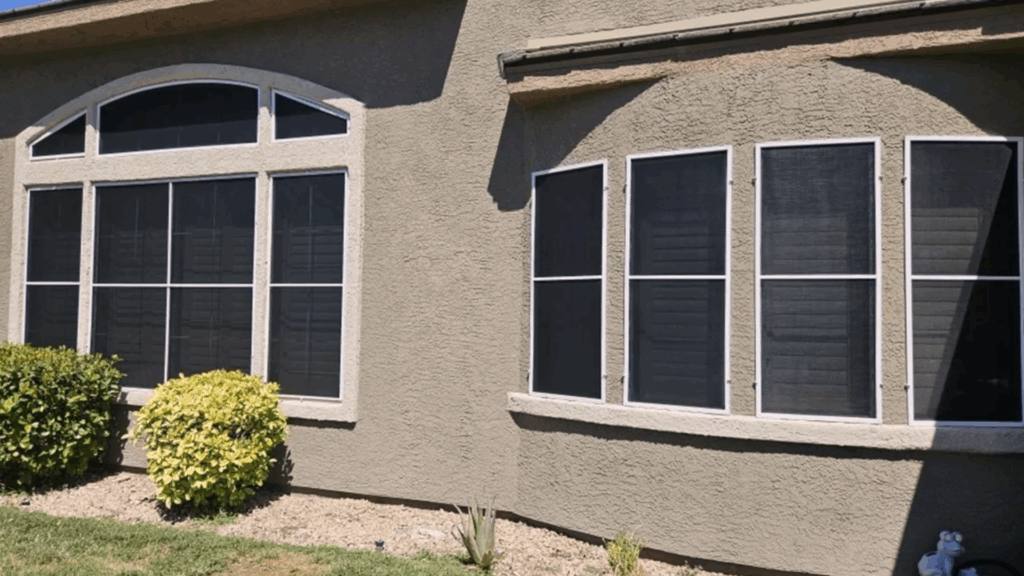
Solar screens aren’t a one-size-fits-all solution, but they offer significant benefits for many homeowners. Understanding their strengths and limitations helps you make an informed decision about protecting your home.
| Pros | Cons |
|---|---|
| Energy Efficiency | Room Darkness |
| Dramatically reduces cooling costs. These screens can cut energy bills by up to 30%. I’ve seen homeowners save serious money during summer months. | Solar screens might slightly dim your interior spaces. If you love bright, sun-filled rooms, this could be a drawback. |
| UV Protection | View Limitation |
| Blocks harmful ultraviolet rays that damage furniture and floors. Think of it as sunscreen for your home. Your expensive furniture stays vibrant and protected. | The mesh can slightly alter your outside view. It’s like looking through a soft filter – not bad, but different. |
| Cost-Effective Solution | Climate Considerations |
| Relatively inexpensive compared to other home cooling methods. One-time investment that keeps paying you back through energy savings. | It may not be as effective in colder regions. If you live where winters are long and harsh, you’ll want to consider removable options. |
| Customization Options | Installation Complexity |
| Available in multiple colors and densities. You can match them to your home’s style. Choose how much light you want to block. | Professional installation might be needed. DIY can be tricky for those not comfortable with home improvement projects. |
The bottom line? Every home is unique. What works perfectly for your neighbor might not be ideal for you. Consider your specific needs, climate, and home layout when making a decision.
How Do Solar Screens Work?
Solar screens work by blocking sunlight before it hits your window glass.
Unlike regular window coverings that work from the inside, solar screens are installed on the outside of the window.
This helps reduce the amount of heat and glare that enters your home right from the start.
The screens are made of special woven materials, usually dark and tightly meshed, that reflect and absorb sunlight.
They filter out harsh UV rays while still allowing some natural light to pass through, enabling you to see outside.
By stopping most of the sun’s heat, solar screens help keep your home cooler, which means your air conditioner doesn’t have to work as hard.
This can lower energy bills during the warmer months.
In short, solar screens act like a shield between your windows and the sun, making your home more comfortable and energy-efficient
Picture this: sunlight approaches your window, but instead of blasting through and heating up your interior, the solar screen intercepts most of that heat.
The result? Your home stays significantly cooler. You’ll notice the difference in your comfort levels and energy bills.
Benefits of Using Solar Screens
Solar screens are more than just window coverings – they’re a smart solution for homeowners seeking comfort, protection, and energy savings.
These innovative screens offer multiple advantages that go beyond simple sun blocking.
1. Lower Energy Bills
Let’s talk money. Solar screens are like a secret weapon against high electricity costs. During those brutal summer months, they can slice your cooling expenses by up to 30%.
I’ve seen homeowners save hundreds of dollars annually. Imagine keeping your home cool without breaking the bank – that’s real savings you can feel.
2. Glare Reduction
Remember squinting at your TV or computer screen? Solar screens are your visual comfort heroes.
They dramatically reduce harsh glare, making indoor spaces more comfortable. No more adjusting blinds or moving furniture to avoid blinding sunlight. Your eyes will thank you.
3. Furniture Protection
Sunlight can be brutal on your beloved furniture and flooring. UV rays are silent destroyers of home decor.
Solar screens act like a protective shield, preventing color fading and material degradation. Your expensive rugs, sofas, and hardwood floors will look newer, longer.
4. Daytime Privacy Boost
Here’s a bonus most people don’t expect. Solar screens provide fantastic daytime privacy.
During daylight hours, you can see out, but others can’t see in. It’s like having one-way glass without the expensive installation.
Ideal for ground-floor rooms or homes located near the street.
5. Additional Perks
Bonus benefits include noise reduction and added home security. The screens create an extra layer between your windows and the outside world. Simple protection, maximum comfort.
How to Choose Solar Window Screens?
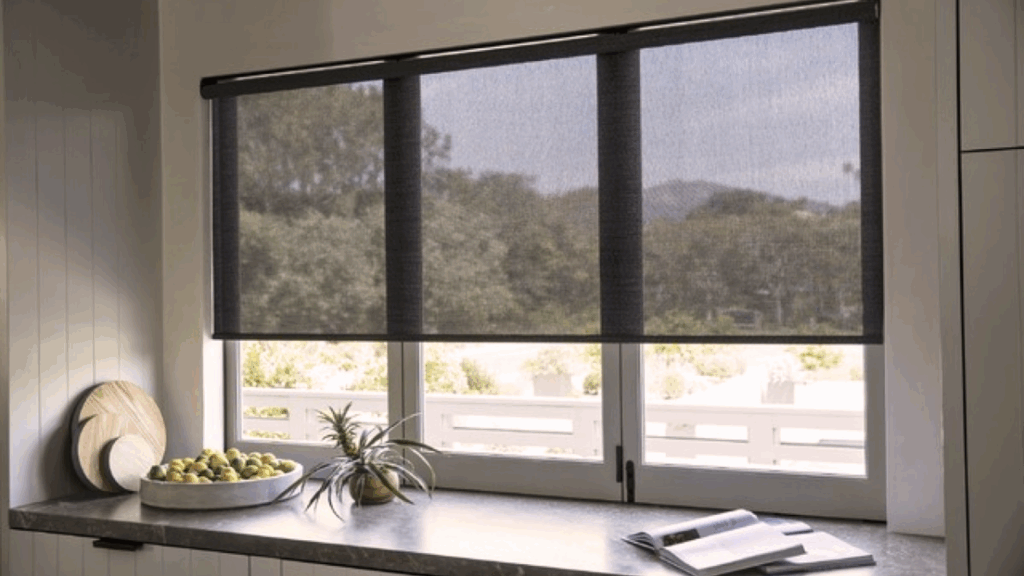
Selecting the right solar window screens is like finding the perfect pair of sunglasses for your home. The right choice can dramatically improve comfort, energy efficiency, and overall home protection.
1. Understanding Mesh Density
Shade percentage is your secret weapon. Think of it like sunglasses for your windows. Screens come in different densities: 70%, 80%, or 90%.
Higher percentages block more sunlight. I recommend starting with 80% for most homes – it’s the sweet spot between comfort and light.
2. Frame and Window Compatibility
Not all screens fit all windows. Measure twice, install once. Check your window types – casement, double-hung, sliding.
Some frames work better with specific screen designs. If measuring feels complicated, don’t worry. Many companies offer free consultations to help you get it right.
3. Color Matters
Darker colors are like stronger sunglasses. They block more glare and heat. Lighter colors let more natural light through.
Dark brown or charcoal can reduce sunlight by up to 90%. Lighter colors might only block 60-70%. Choose based on your room’s needs and personal preference.
4. Installation Options
- DIY: Saves money, requires some home improvement skills
- Professional: Guaranteed perfect fit, more expensive
- Hybrid: Some stores offer installation support for DIY buyers
5. Climate and Budget Considerations
Your local weather matters. Hot, sunny regions need different screens compared to milder climates.
Budget isn’t just about screen cost – think long-term energy savings. A slightly pricier screen might save you money on cooling bills.
How Long Do Solar Window Screens Last?
Solar screens aren’t forever, but they’re pretty durable. Most high-quality screens will serve you faithfully for 10 to 15 years.
Think of them like a reliable car, with good maintenance, they’ll stick around much longer than you might expect.
Several factors impact their lifespan. The weather is the biggest culprit. Intense sun, heavy storms, and extreme temperatures can wear down your screens faster.
I’ve seen screens in harsh desert regions last 8 years, while those in milder climates can push past 15.
Sunlight, dirt, and debris are your screens’ worst enemies. Cheap materials degrade faster. Polyester and fiberglass screens tend to outlast other materials.
Regular cleaning prevents buildup that can weaken the mesh.
Warning Signs
- Visible tears
- Loose frame
- Discoloration
- Sagging mesh
Pro tip: Invest in quality screens. Cheaper isn’t always better. A well-made screen saves you money in the long run.
Do Solar Screens Make Your House Dark?
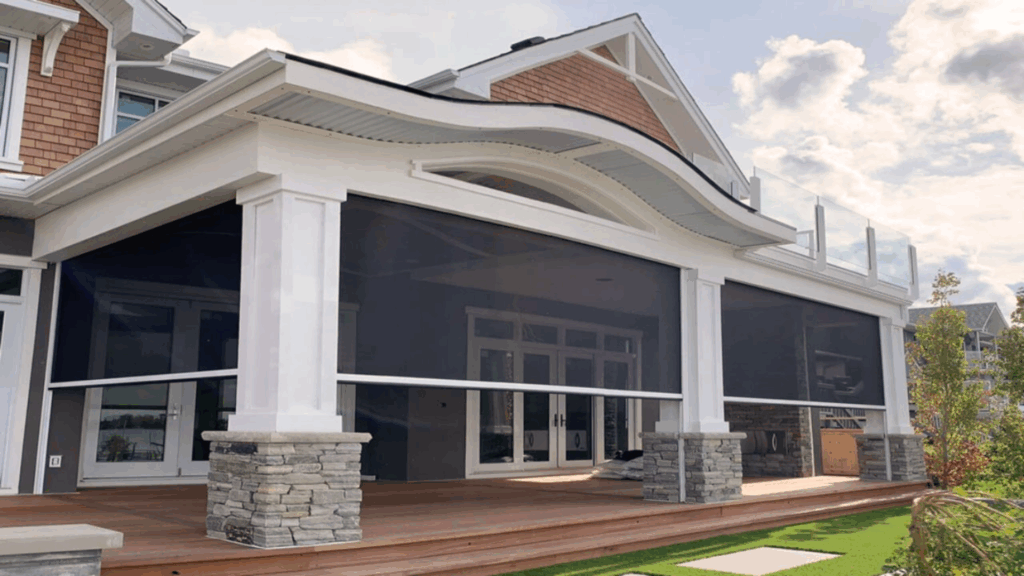
Let’s talk about the elephant in the room. Do solar screens turn your bright, cheerful home into a cave? Not exactly.
Think of them more like sunglasses for your windows – they dim the light, but don’t plunge you into darkness.
Brightness depends on a few key factors. The mesh density, screen color, and your window’s direction all play a role.
An 80% density screen will feel different from a 60% screen. I’ve seen homes that still feel wonderfully light, even with solar screens installed.
Imagine walking into a room with soft, gentle lighting. That’s what solar screens do. They’re not blackout curtains.
They reduce harsh glare and intense sunlight, creating a more comfortable indoor environment. Some homeowners actually prefer this softer light.
- North-facing windows: Minimal dimming
- South-facing windows: More noticeable light reduction
- East and west windows: Moderate light change
Conclusion
Solar screens aren’t magic, but they’re pretty close. They’re a smart solution for homeowners tired of battling heat and high energy bills.
Remember, not every home needs full coverage. Start small – try screens on one or two sun-facing windows first. Your climate, budget, and comfort matter most.
Some homeowners see immediate benefits, while others might need a more customized approach.
I’ve watched families cut their cooling costs and improve home comfort with these simple additions.
Talk to local experts. They can help you choose the right screens for your specific home. Don’t feel pressured to cover every window. Experiment and see what works for you. Your home, your rules.
Ready to stay cooler and save money? Solar screens might just be your new best friend.

